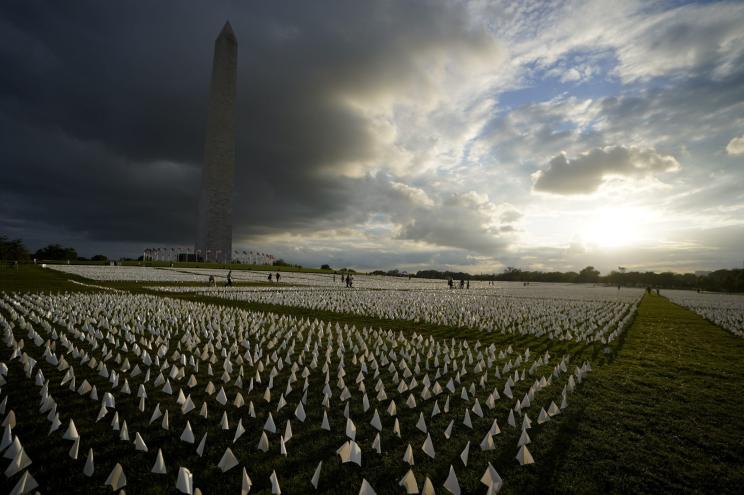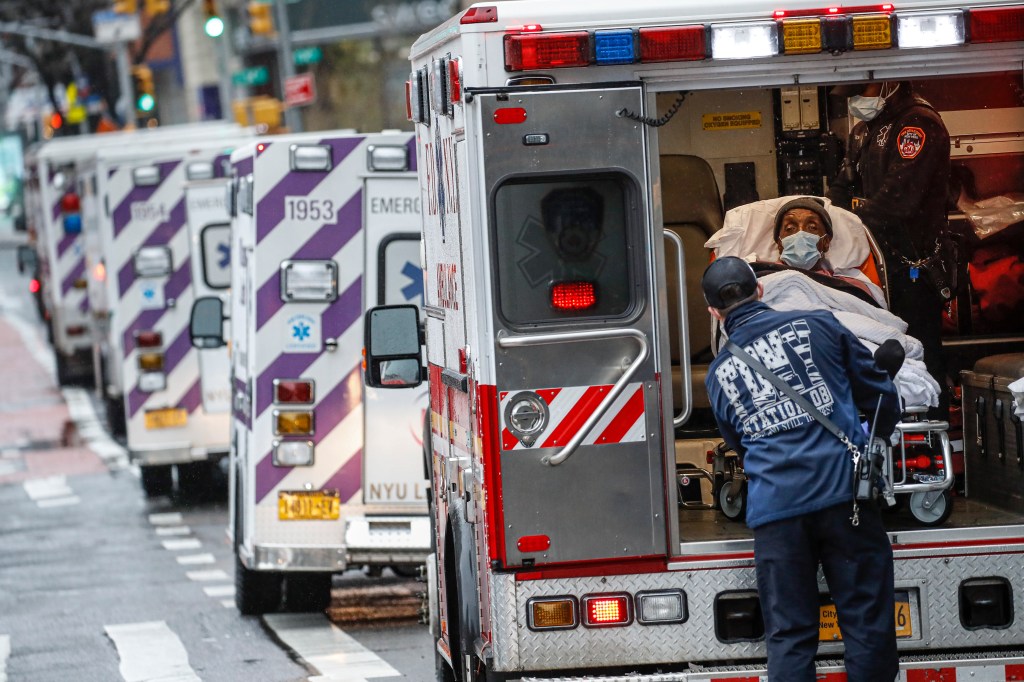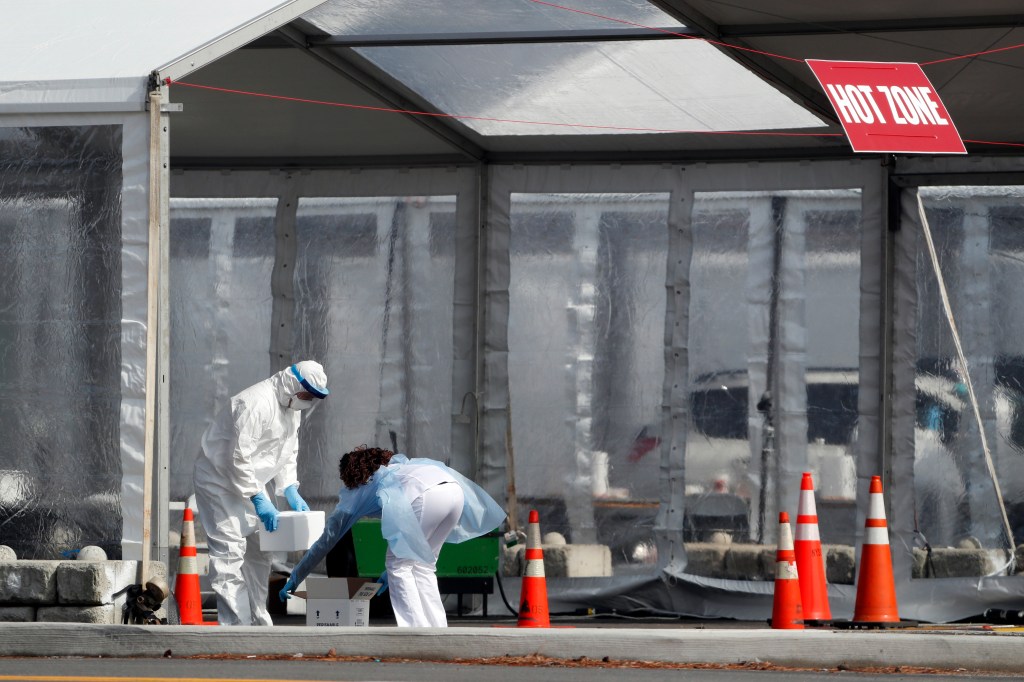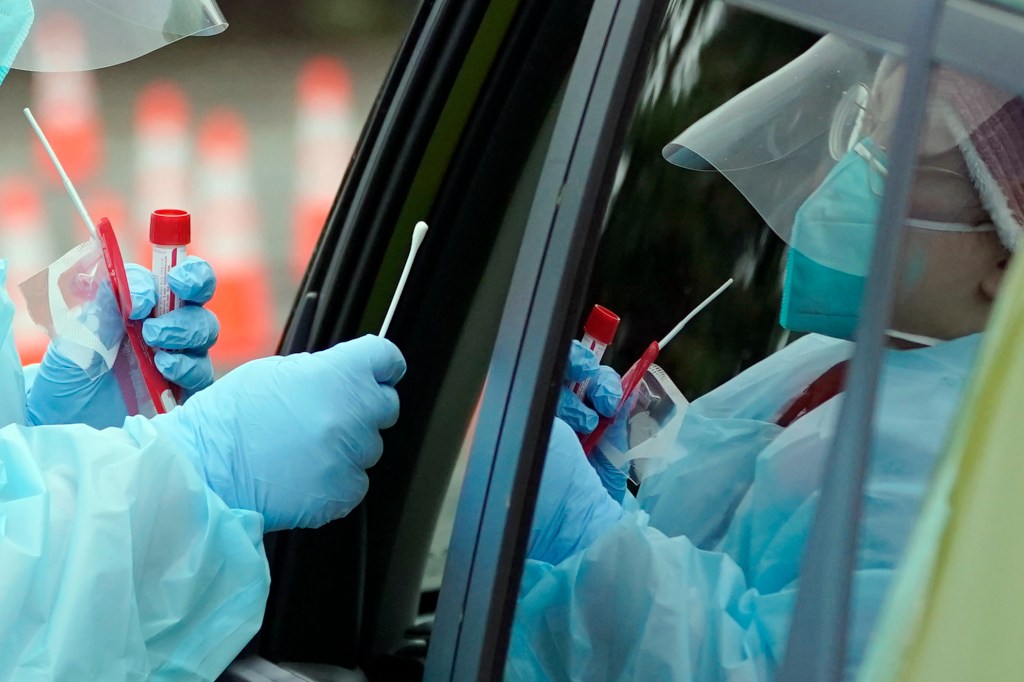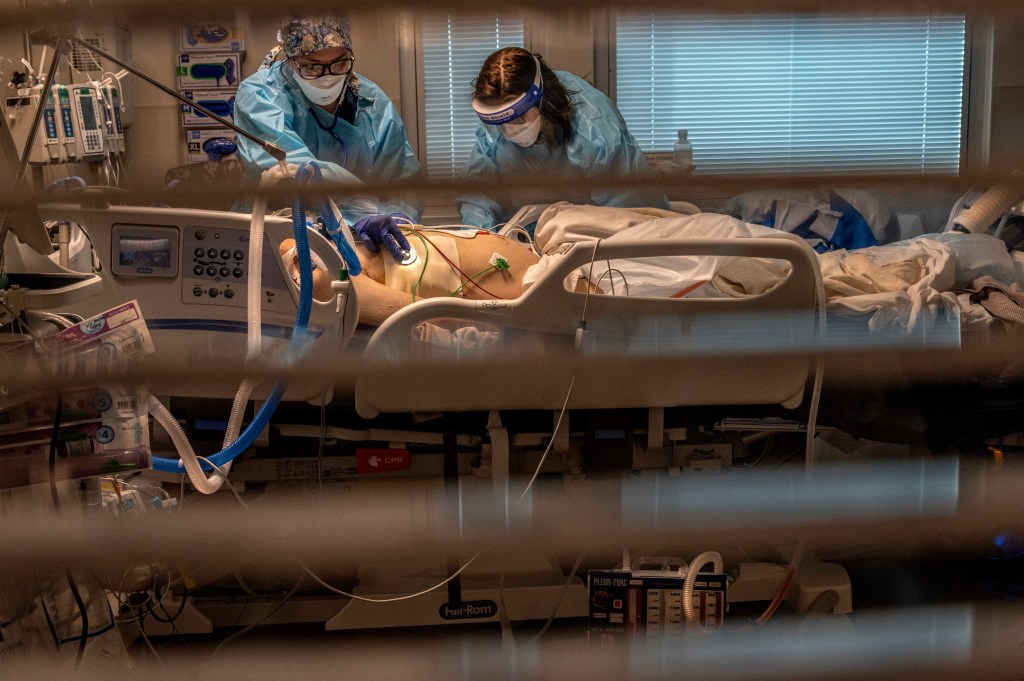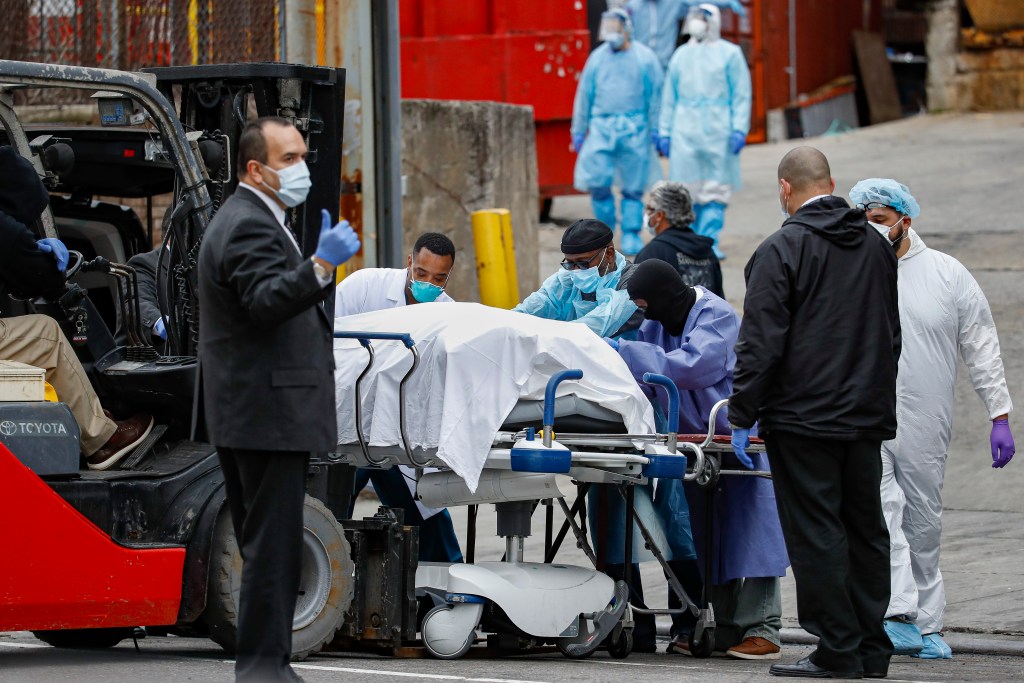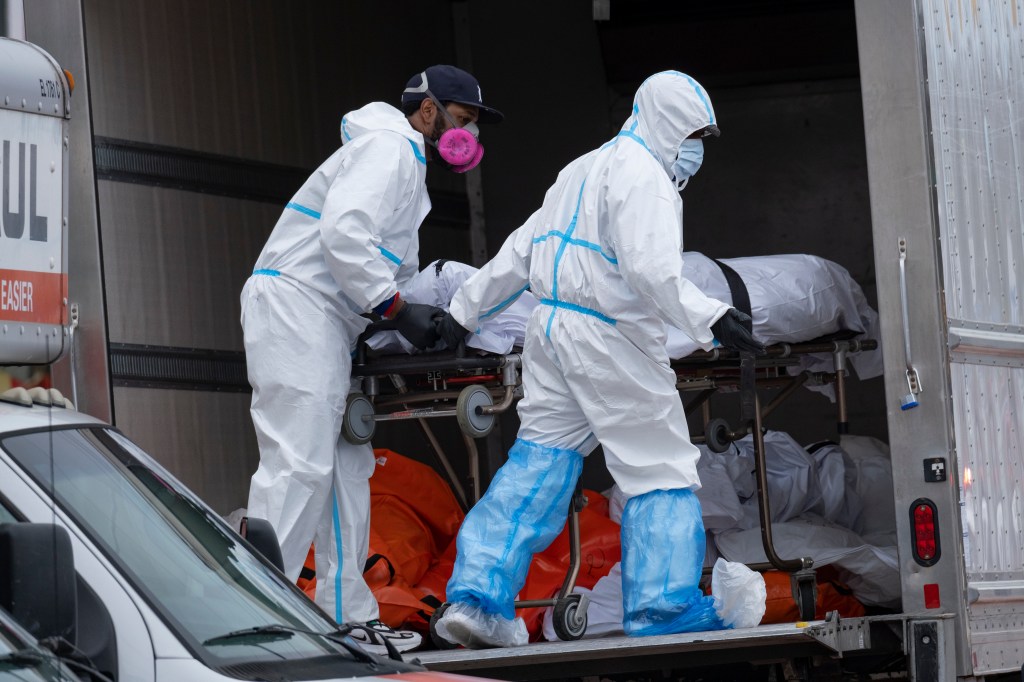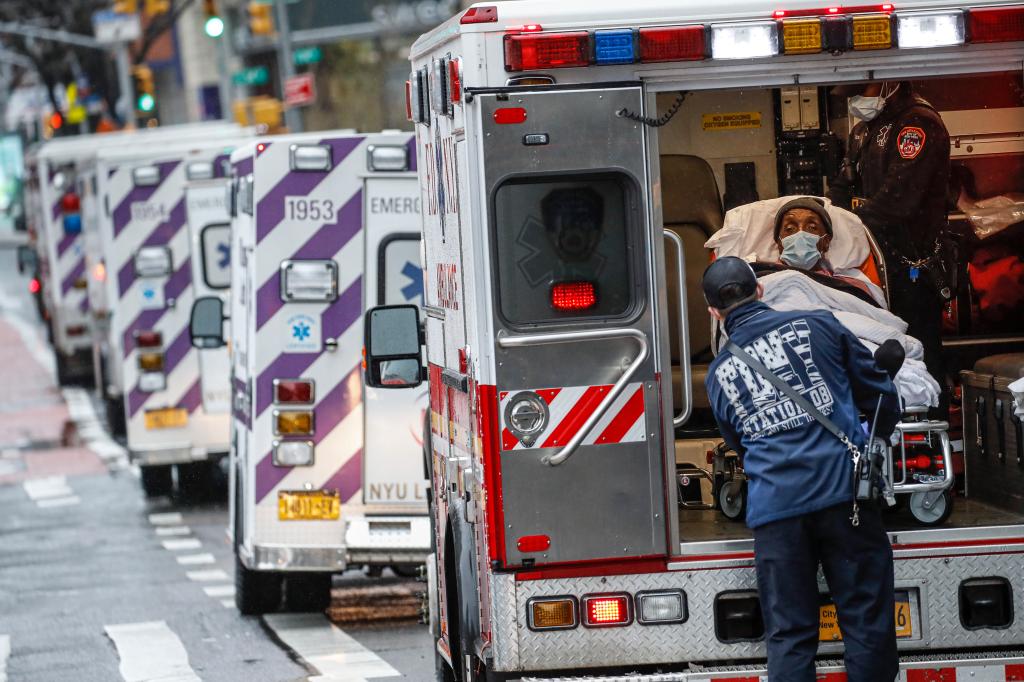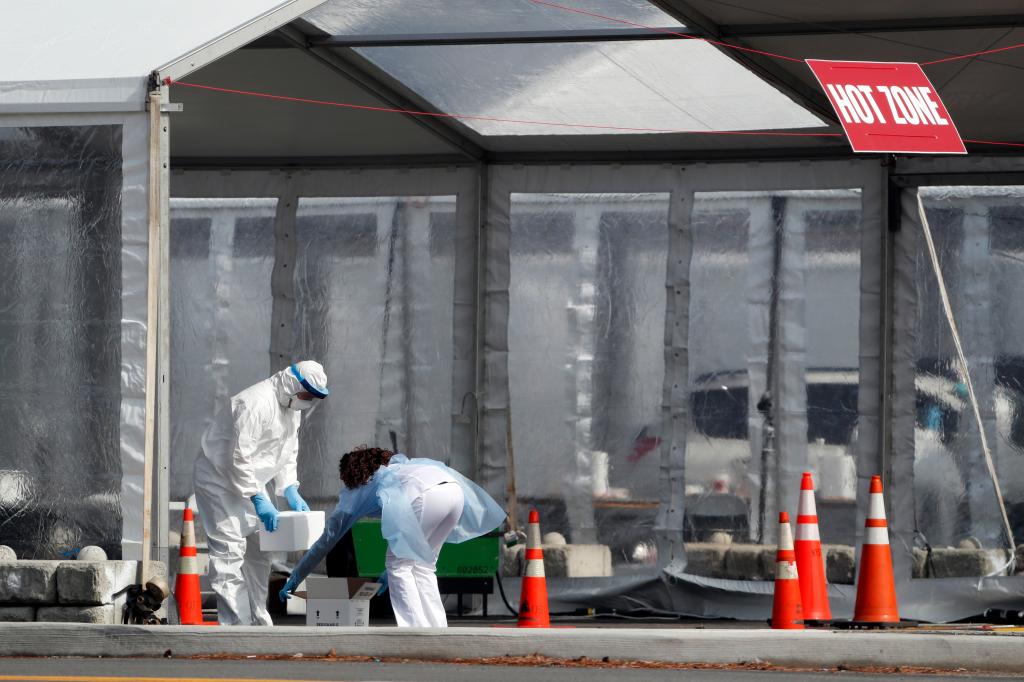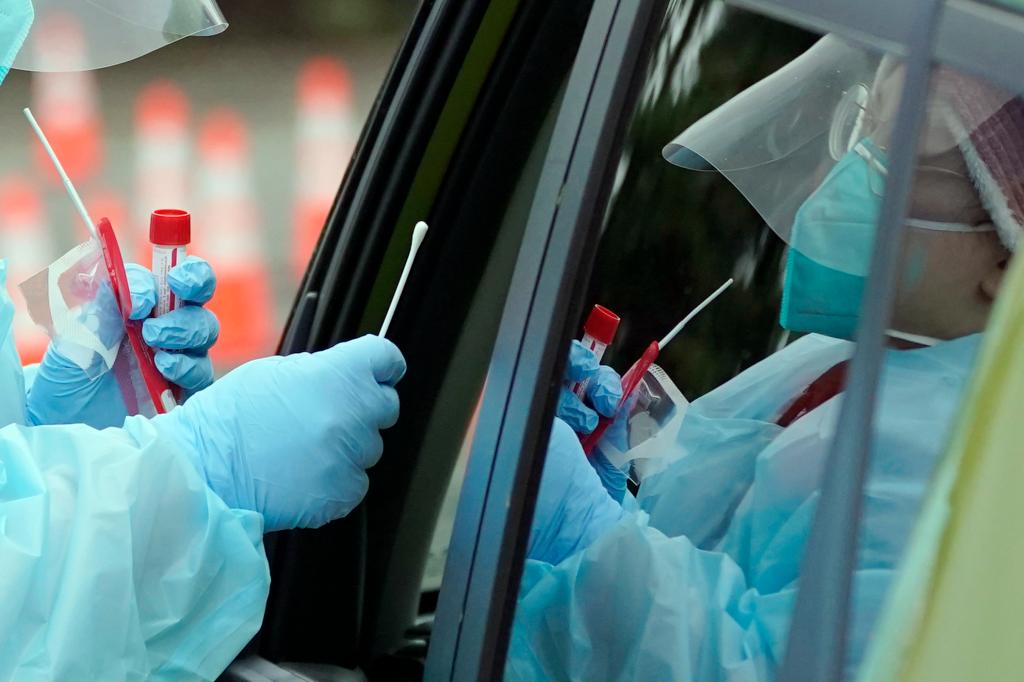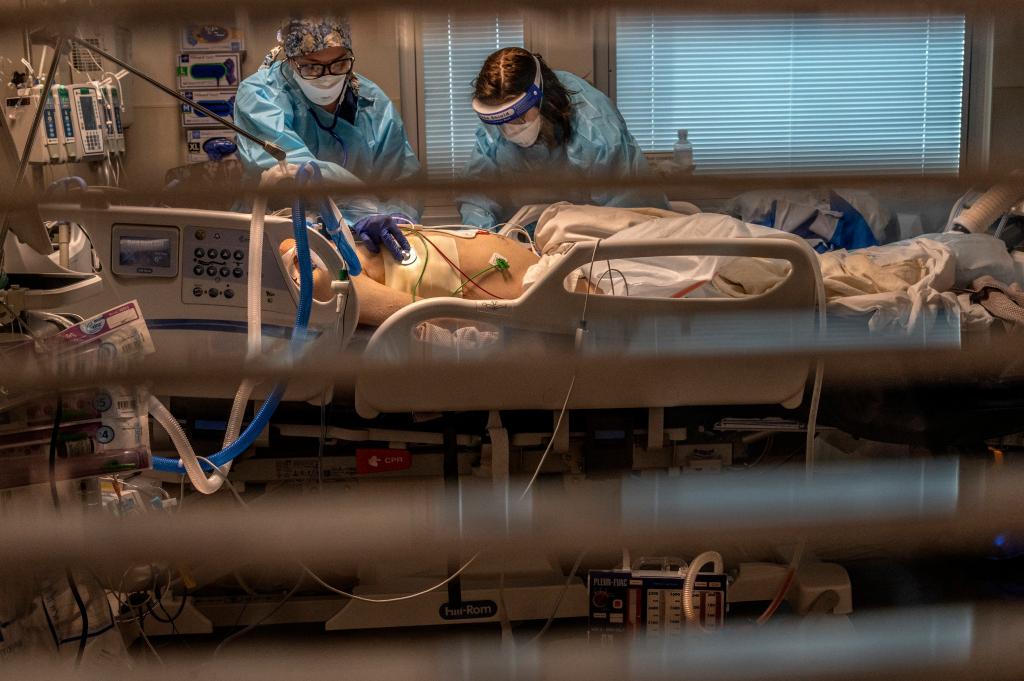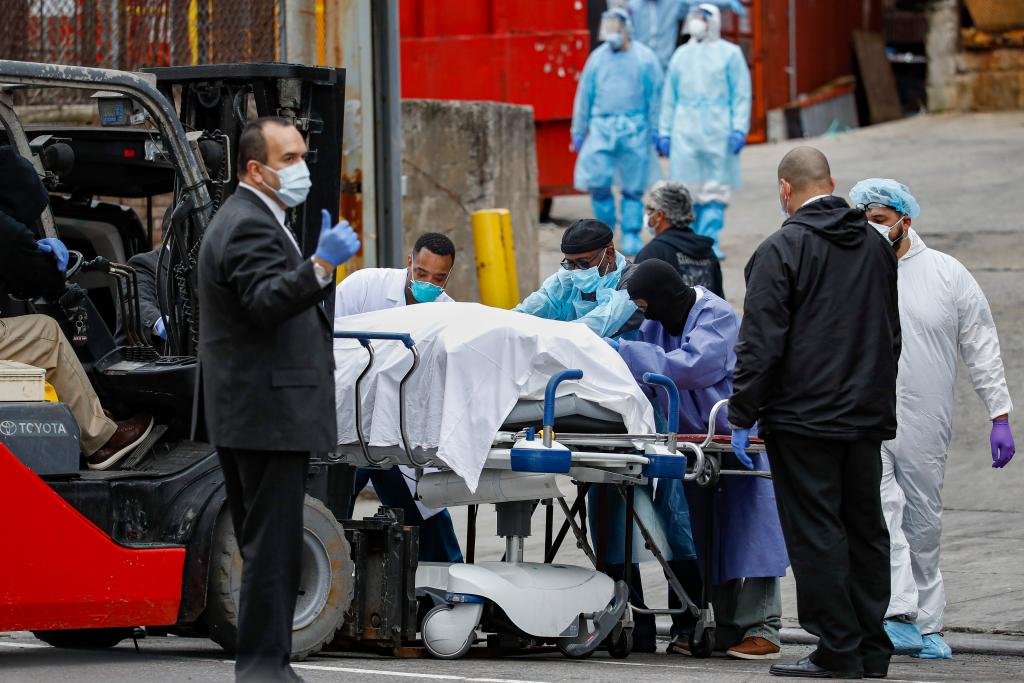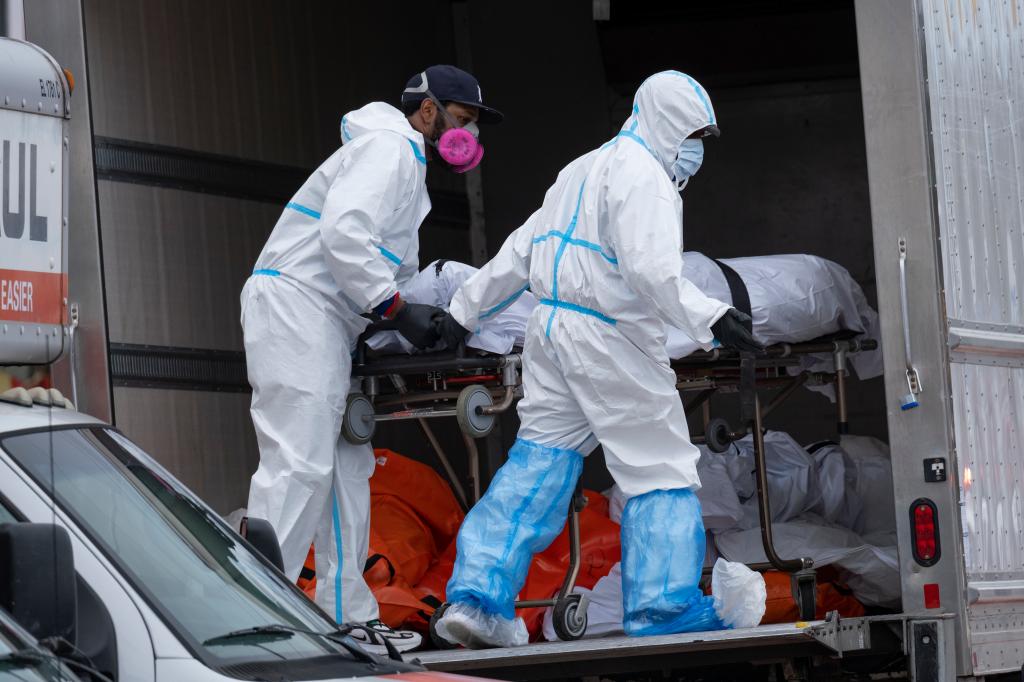The coronavirus pandemic, while officially over, has killed a staggering 80,000-plus New Yorkers — and a total 1.13 million Americans — impacting virtually every facet of our lives.
The latest data compiled by the US Centers for Disease Control and Prevention shows 80,485 people in New York state died during the COVID-19 emergency — about half of them in New York City.
The New York City region was the initial epicenter of the COVID outbreak, but its quick spread also affected the rest of the nation.
From March 2020 through last week — when a federal law approved by Congress and President Biden ended the emergency — the virus killed 1,127,928 Americans.
Some elected officials and public health experts are urging people to stay current with COVID vaccinations — especially the elderly and immunocompromised.
“Even though the federal public health emergency has ended, I encourage every New Yorker to remain vigilant against COVID-19 and use all available tools to keep themselves, their loved ones and their communities safe and healthy,” Gov. Kathy Hochul said in her latest COVID update.
“Stay up to date on vaccine doses and be sure to test before gatherings or travel. If you test positive, talk to your doctor about potential treatment options.”
While the worst of the pandemic has passed, much wreckage remains.
“Declaring the pandemic over doesn’t doesn’t mean all is well,” said Dr. Ayman El-Mohandes, dean of the City University’s Graduate School of Public Health.
El-Mohandes said a considerable number of patients still suffer from “long COVID” — lingering symptoms such as brain fog, respiratory problems, erectile dysfunction and hair loss.
He also noted those who didn’t go for medical check-ups for fear of catching COVID could end up with a cancer diagnosis that could have been discovered at an earlier stage.
“We have to continue to be sensitive to people whose recovery might take longer. For them, the pandemic is not over,” he said.
The COVID outbreak particularly upended our way of life in New York — with fearful people moving out of the region, job losses, business closings and the impact on students from school shutdowns.
Disadvantaged and minority communities were hardest hit.
“We have to be mindful of the fact that communities have lingering needs,” El-Mahandes said. “It’s important that optimism doesn’t blind us to these lingering needs from a health point of view, a social point of view and an economic point of view.”
Before vaccines and drug treatment were widely available, the elderly and immunosuppressed suffered the highest deaths — including in nursing homes.
First responders put their lives on the line to save others — particularly EMTs and paramedics who transported sick and dying COVID patients to hospitals, as well as doctors, nurses and other medical staffers who worked even through times they lacked personal protective equipment to protect them.
Lessons from the pandemic must be heeded by bolstering global communication and data sharing and bringing poorer countries into the fold to prevent outbreaks from variants, the CUNY health dean said.
“We’re all in this together. Unless we deal with these situations globally, they will linger,” said El-Mahandes.
